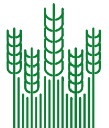Idea and practice of inclusive farming
Inclusive farming (INCLUFAR) - Transfer of concepts, experiences, skills, and training tools for social
farming and eco-social inclusion is an innovation transfer project within the Lifelong Learning Leonardo
da Vinci funding scheme of the EU. The results were gathered during the project period from October
2013 until September 2015.
Why INCLUFAR? First, Finland signed the UN convention on the rights of persons with disabilities
and is presently adjusting the legislation accordingly. Second, the results of the public consultation on
the review of the EU-policy on organic agriculture conducted by the directorate general for agriculture
and rural development in 2013 shows that economic and social dimension have the highest priority.
Third, social farming and green care enterprises put the multifunctionality demand of policy makers into
practice.
Because green care enterprises emerged in the past decade rapidly, there is a lack of qualified staff
specialised on both agriculture and social work related professions. The results of the past EU funded
green care projects SoFar, DIANA, MAIE, and others reflect this fact addressing development of appropriate
VET curricula as a concern.
INCLUFAR meets the need for appropriate curricula suitable for social farming and green care enterprises
which link care for both, individuals with special needs and for nature in organic farms. INCLUFAR
transferred a new on-farm developed curriculum and the gathered experiences with it to green
care enterprises and to related institutions following the principal of inclusion. As a result better labour
opportunities emerge, fostering rural economic development. Exploiting the specific agricultural work
and life-setting may improve social welfare structure in rural areas.
Outcomes of the project are: 1. The INCLUFAR handbook, providing background knowledge of
and concepts for inclusive farming. 2. The INCLUFAR curriculum, available in all partner country languages.
3. An occupational profile to meet the practical steps implementing the INCLUFAR idea.
The skills gathered in the partner countries through coaching team visits to Austria, Bulgaria, Estonia,
Finland, Norway, the Netherlands, and Turkey contributed to improve the quality of work on farm as
well as on the rural area and its different professions (farmers, gardeners, handicrafts, nurses, social
workers, civil servants, students, scientists, decision makers of public authorities, etc.). The term inclusion,
as a central concern in the UN convention on the rights of persons with disabilities was also applied
to improve the cultural landscape and its biotopes. Thus, the project contributed to improve and support
the training path aims of creating a greater awareness of social and ecological inclusion.
- Log in to post comments


